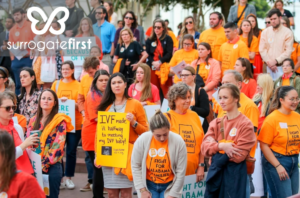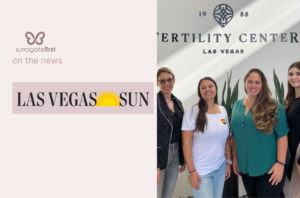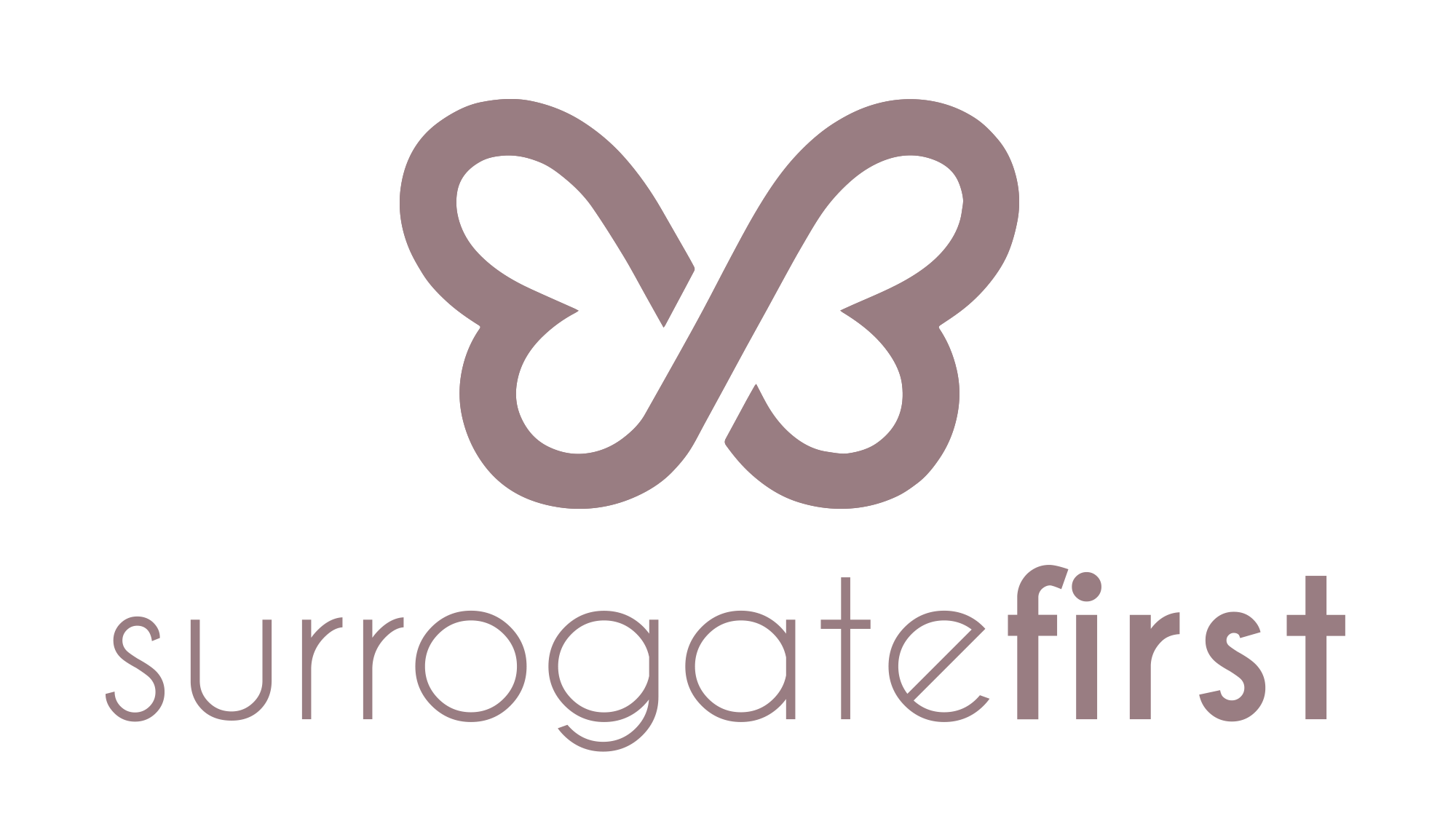If you’re unsure about the difference between surrogacy and embryo adoption, you’re not alone. Many intended parents who visit our agency are unaware of the range of options to start a family.

Table of Contents
- 1. What is embryo adoption?
- 2. How can you tell if embryo adoption is the right choice?
- 3. What are your options if embryo adoption isn’t the best choice for your family?
- 4. What does embryo adoption mean for LGBTQ parents?
- 5. What does embryo adoption mean for single parents?
- 6. About SurrogateFirst
We have a passion for helping intended parents start families for the first time. When it comes to the challenge of infertility, we pride ourselves in providing as much information about all options as possible.
The following tips outline the difference between embryo adoption and traditional gestational surrogacy.
What is embryo adoption?
Surrogacy and embryo adoption are similar, but there is a crucial distinction you need to know: embryo adoption doesn’t require a gestational carrier.
The adoptive mother is the one who carries the child to term, not another woman.
The difference lies in that one can combine embryo adoption with surrogacy if the intended mother is neither able to produce her own ovum, or birth the child safely. However, the latter scenario is somewhat rare.
Embryo adoption doesn’t follow the normal US adoption process. The United States doesn’t consider an embryo as a personrather it is seen as propertyso embryo regulations don’t follow adoption laws.
However, most embryo transfers disclose standard adoption information so that all parties are privy to the process. Still, deciding to go with embryo adoption over gestational surrogacy isn’t always straightforward.
How can you tell if embryo adoption is the right choice?
The bottom line is this: embryo adoption works best if you want the whole experience of carrying a child to term, including all prenatal and postnatal care and emotional bonding.
Oftentimes, this choice comes down to price. Embryo adoption is cheaper than surrogacy in general.
However, embryo adoption is only an option if you’re healthy enough to birth a child. If you can’t safely give birth for any reason, we strongly recommend against embryo adoption because the risk to health and safety is too large.
What are your options if embryo adoption isn’t the best choice for your family?
You may not know that there are many different forms of infertility. Each one requires other treatments, and prognoses can vary widely.
While embryo adoption may seem like the ideal solution, you still have to account for the viability of the pregnancy itself. Motherhood isn’t a guarantee, and even in our modern age, medical complications during and after pregnancy are relatively common.
In our time, mental health is equally as important as physical health, and pregnancy is a perfect example. The last thing we want is for embryo adoption to lead to anguish like postpartum depression or parenting anxiety.
That’s why we believe that raising a healthy, happy child is more than a business; it requires a holistic approach at every stage.
What does embryo adoption mean for LGBTQ parents?
With respect to LGBTQ intended parents, embryo adoption could be a viable option if a female can carry the child as a normal pregnancy. Thus, male couples can’t go with embryo adoption because someone has to give birth to the child naturally.
That’s why LGBTQ intended parents opt for surrogacy instead of embryo donation. Sometimes, an embryo donation simply isn’t biologically feasible for certain couples.
But the good news is that LGBTQ couples who do choose embryo adoption will have the same rights as heterosexual parents if they live in a state that allows it.
What does embryo adoption mean for single parents?
Besides, the situation is much different for single intended mothers. Technically speaking, embryo adoption doesn’t require a partner; the female simply carries an “adopted” embryo to a term like a normal child.
The crucial distinction is that there won’t be a genetic link between the child and the mother. The overall course is more similar to adoption than the in vitro procedure to place the embryo in the intended mother’s womb.
In the end, no matter which option you choose, we invite you to contact our surrogacy experts to explore your options!
About SurrogateFirst
At SurrogateFirst, we’re a boutique surrogate agency specializing in matching intended parents around the world with exceptional surrogates.
We help individuals and couples, regardless of race or sexual orientation, build their families through the miracle of surrogacy.
Every team member at SurrogateFirst is either a former intended parent or an experienced surrogate herself. We also have first-hand knowledge of what it takes to have an incredible, successful surrogacy journey.





